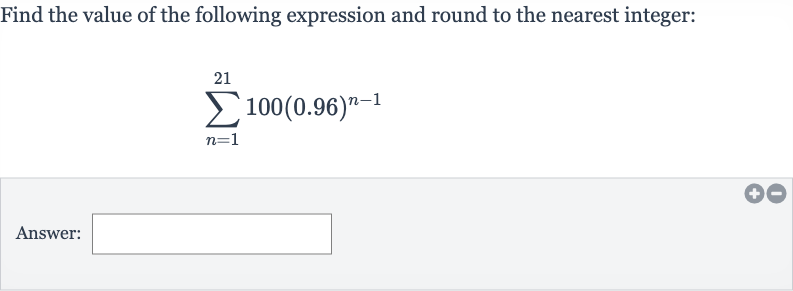Full solution
Q. Find the value of the following expression and round to the nearest integer:Answer:
- Given values and formula: We are asked to evaluate a geometric series with the first term and the common ratio . The sum of the first terms of a geometric series is given by the formula , where is the number of terms. In this case, we want to find the sum of the first terms.
- Calculate power of : First, let's plug in the values into the formula for the sum of a geometric series: .
- Substitute values into formula: Now, we calculate the power of using a calculator.
- Perform subtraction in numerator: After calculating, we find that is approximately .
- Perform subtraction in denominator: We substitute this value back into the formula: .
- Divide numerator by denominator: Now, we perform the subtraction in the numerator: .
- Perform division and multiplication: Next, we perform the subtraction in the denominator: .
- Round to nearest integer: We now divide the numerator by the denominator: .
- Round to nearest integer: We now divide the numerator by the denominator: . Performing the division and multiplication, we get .
- Round to nearest integer: We now divide the numerator by the denominator: . Performing the division and multiplication, we get . Multiplying by gives us .
- Round to nearest integer: We now divide the numerator by the denominator: . Performing the division and multiplication, we get . Multiplying by gives us . Finally, we round to the nearest integer, which is .

